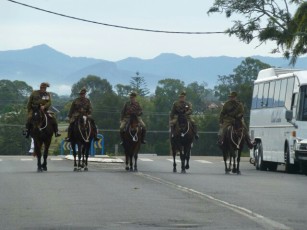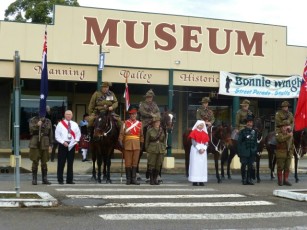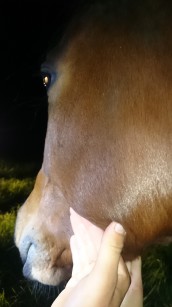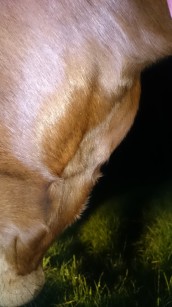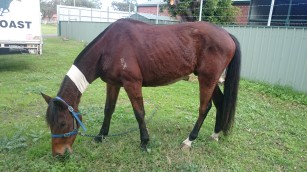It's not just what we know... it's how much we care!
Beware of Small Strongyles (if you are a horse)…..
Recently, we have noticed a large number of colic cases in our local area.
One such horse, Billy, belongs to Robyn, one of our staff members. Although pictured above at the Bonny Wingham Scottish Festival looking wonderful (the middle horse), eleven days later he presented with colic involving extreme pain and thrashing, and subsequently underwent abdominal surgery at the Newcastle Equine Centre.
Surgery showed severe inflammation which was the cause of the colic. The inflammation in turn had been caused by a persistent worm called an encysted small strongyle. This worm is becoming more common and it is not eradicated by the use of standard equine drenches. These worms don’t lay eggs, so a faecal egg count may give us a negative worm count! The only products which are working effectively against these worms are either “Equest” or a five day course of Panacur 100. Billy had been treated with Panacur the week previously so although the worms had been dealt with, the damage caused still resulted in severe colic.
In general, the presenting signs of encysted small strongyles are colic, diarrhoea and swelling resulting from protein loss (seen in the lower parts of the body such as lower jaw, brisket and under the belly). The protein loss is due to protein leaking out through the damaged intestinal wall.
Following surgery, and fluid replacement therapy, Billy is now safe and well back in Wingham.
This case is a good reminder of the recommendation to use at least one of either Equest or a five day course of Panacur at least once a year around the rotation of the standard drenches.
If you would like more information, follow this link:
http://thehorsesback.com/encysted-small-strongyles/
